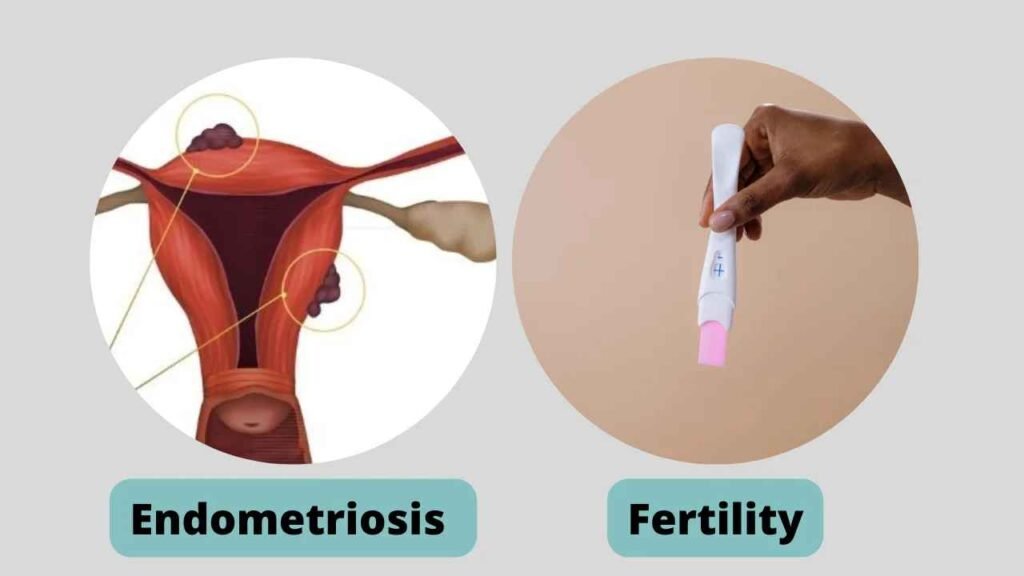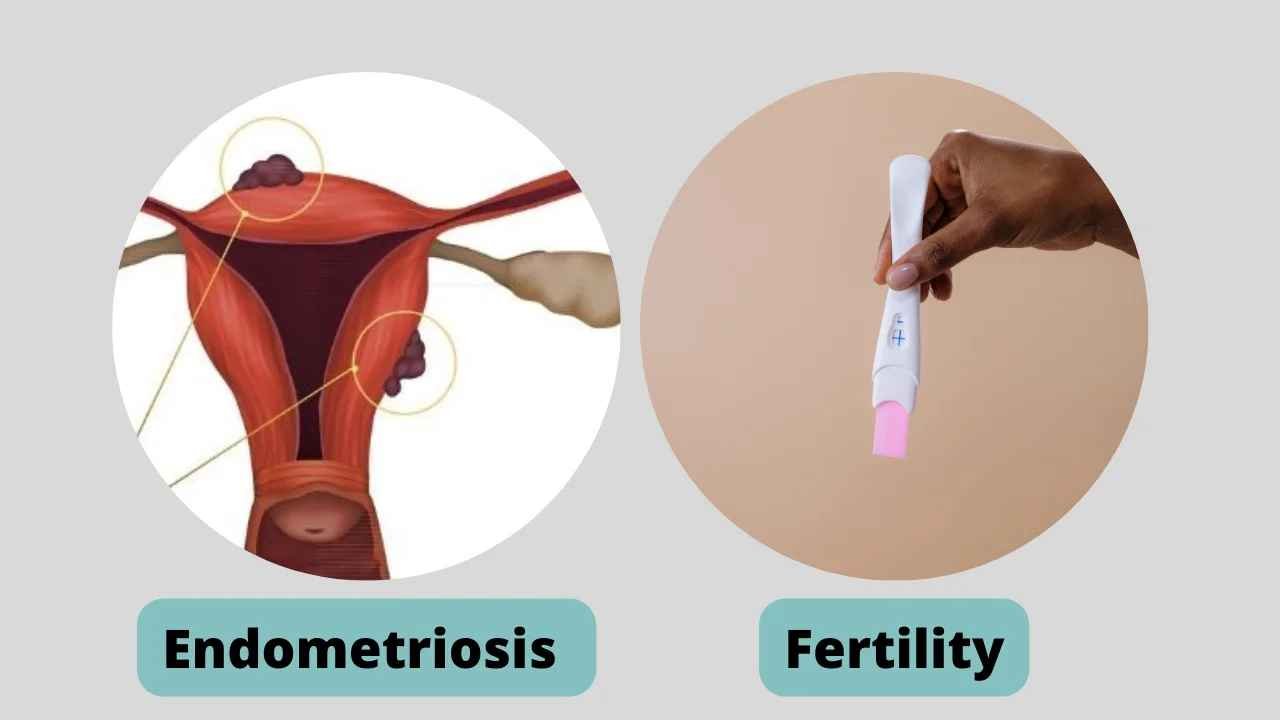Endometriosis is a condition that affects millions of women worldwide, yet its impact on fertility is often misunderstood. If you are trying to conceive and have been diagnosed with endometriosis, you might have concerns about your chances of getting pregnant. In this comprehensive guide, we will explore the connection between endometriosis and fertility, symptoms, causes, treatment options, and ways to boost your chances of conception.
Endometriosis and Fertility: Causes, Treatments & Pregnancy Tips

What is Endometriosis?
Endometriosis is a chronic condition where the tissue similar to the lining of the uterus (endometrium) grows outside the uterus. This misplaced tissue can be found on the ovaries, fallopian tubes, and other pelvic organs, leading to pain, inflammation, and scarring.
Common Symptoms of Endometriosis
Many women with endometriosis experience a range of symptoms, including:
Severe menstrual cramps
Chronic pelvic pain
Pain during or after intercourse
Heavy or irregular periods
Painful bowel movements or urination
Fatigue and bloating
Difficulty getting pregnant
Since symptoms can overlap with other conditions, many women remain undiagnosed for years.
How Does Endometriosis Affect Fertility?
Endometriosis and Ovulation Issues
Endometriosis can disrupt ovulation, making it harder for eggs to mature and be released. Inflammation from endometriosis may also reduce egg quality.
Blocked Fallopian Tubes and Implantation Problems
Scar tissue and adhesions can block the fallopian tubes, preventing sperm from reaching the egg. Additionally, the uterus may become less receptive to embryo implantation, reducing the chances of a successful pregnancy.
Inflammation and Hormonal Imbalances
Chronic inflammation in the pelvic area can create a hostile environment for conception. Hormonal imbalances associated with endometriosis can also interfere with the menstrual cycle and embryo development.
Can You Get Pregnant with Endometriosis?
Yes! Many women with endometriosis conceive naturally or with medical assistance. The severity of endometriosis plays a crucial role in fertility:
Mild to moderate cases: Pregnancy is possible with lifestyle changes and natural fertility-boosting methods.
Severe cases: Medical treatments, including surgery or assisted reproductive technologies (ART), may be necessary.
Endometriosis and Natural Conception: What Are the Chances?
Research suggests that about 30-50% of women with endometriosis face infertility challenges. However, many still conceive with proper management and medical support.
Treatment Options to Improve Fertility with Endometriosis
1. Lifestyle Changes to Boost Fertility Naturally
Making small adjustments to your lifestyle can improve your chances of conceiving.
Anti-inflammatory diet: Eat more leafy greens, berries, fatty fish, and whole grains.
Regular exercise: Light activities like yoga or walking can reduce inflammation.
Stress management: High stress can worsen endometriosis symptoms. Practice meditation or deep breathing exercises.
2. Medications to Manage Symptoms
While medications do not cure endometriosis, they help control symptoms and improve fertility outcomes.
Pain relievers: NSAIDs like ibuprofen can reduce inflammation.
Hormonal treatments: Birth control pills, progesterone therapy, or GnRH agonists help manage symptoms but are not ideal when trying to conceive.
3. Surgery for Endometriosis and Fertility Improvement
For women with severe endometriosis, laparoscopic surgery can remove endometrial tissue, improving fertility by restoring reproductive organ function. Studies show that surgery increases pregnancy chances, especially in moderate-to-severe cases.
4. Fertility Treatments for Endometriosis Patients
If natural conception does not happen, medical treatments can significantly improve your chances.
Ovulation Induction: Medications like Clomid stimulate egg production.
Intrauterine Insemination (IUI): Sperm is directly placed in the uterus to increase fertilization chances.
In Vitro Fertilization (IVF): IVF is the most effective fertility treatment for women with severe endometriosis. Eggs are retrieved, fertilized in a lab, and implanted in the uterus.
Best Tips to Improve Fertility with Endometriosis
Track your ovulation: Use basal body temperature tracking or ovulation predictor kits.
Maintain a healthy weight: Being overweight or underweight can impact fertility.
Reduce caffeine and alcohol intake: Both can worsen endometriosis symptoms.
Seek early medical advice: Don’t wait too long before consulting a fertility specialist.
Consider acupuncture: Some studies suggest it improves fertility in endometriosis patients.
When to See a Doctor for Endometriosis and Infertility?
If you have been trying to conceive for over six months without success, consult a doctor. A fertility specialist can assess your reproductive health and recommend the best course of action.
Final Thoughts: Can You Overcome Endometriosis-Related Infertility?
Yes! While endometriosis can make conception more challenging, many women successfully become pregnant with the right approach. Understanding your condition, exploring treatment options, and seeking timely medical help can increase your chances of having a baby.
If you’re struggling with endometriosis and fertility, don’t lose hope—consult a specialist and explore the best solutions for your unique journey.
FAQs on Endometriosis and Fertility
1. Can I get pregnant naturally with endometriosis?
Yes, many women conceive naturally, especially in mild to moderate cases. Tracking ovulation and maintaining a healthy lifestyle can help.
2. Does endometriosis always cause infertility?
No, but it can make conception more difficult. Early diagnosis and proper management can improve fertility.
3. What is the best fertility treatment for endometriosis?
IVF is the most effective option for severe cases, while ovulation induction or IUI can work for mild cases.
4. How can I improve my fertility with endometriosis?
Follow an anti-inflammatory diet, exercise regularly, reduce stress, and seek medical advice if conception is delayed.
5. Can surgery improve fertility in endometriosis patients?
Yes, laparoscopic surgery can remove adhesions and scar tissue, increasing pregnancy chances.









